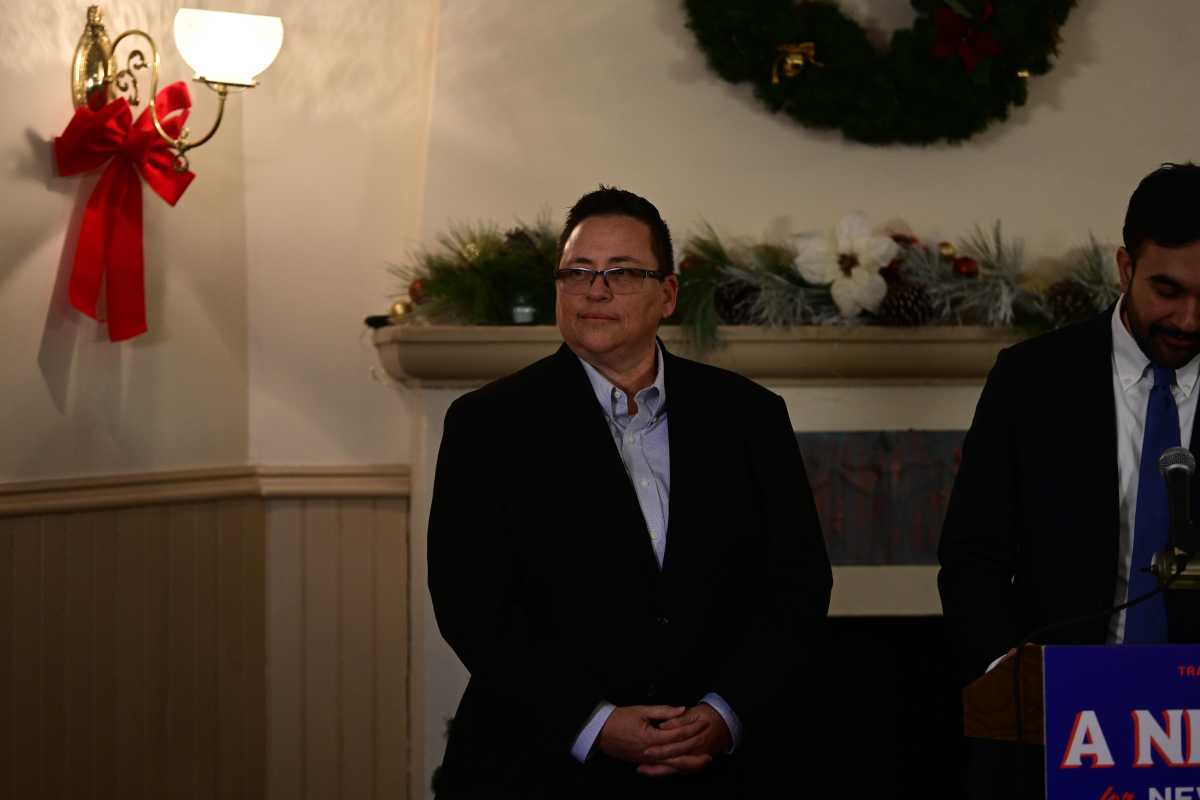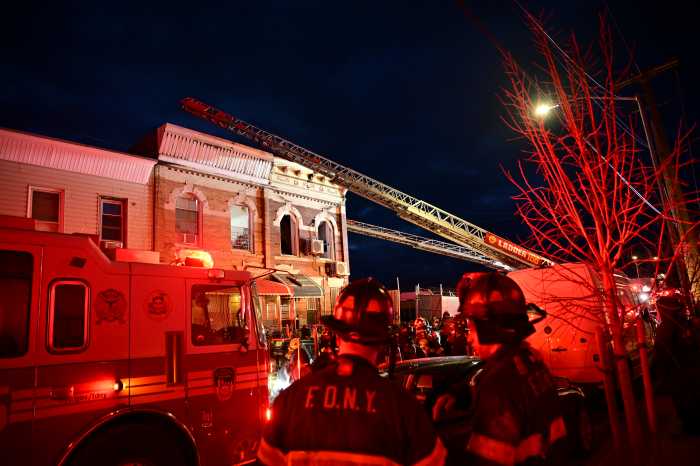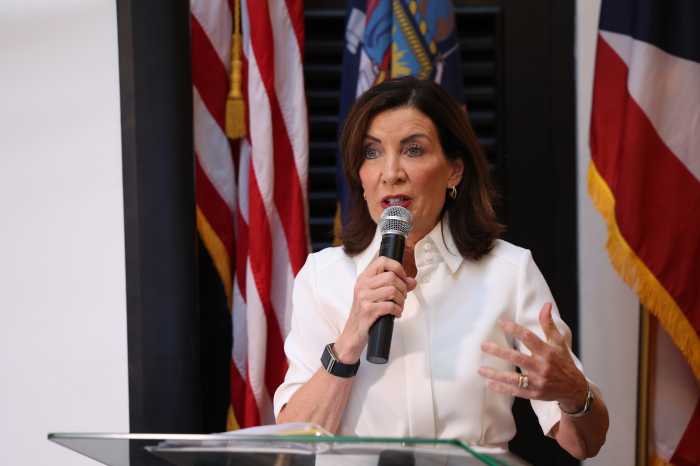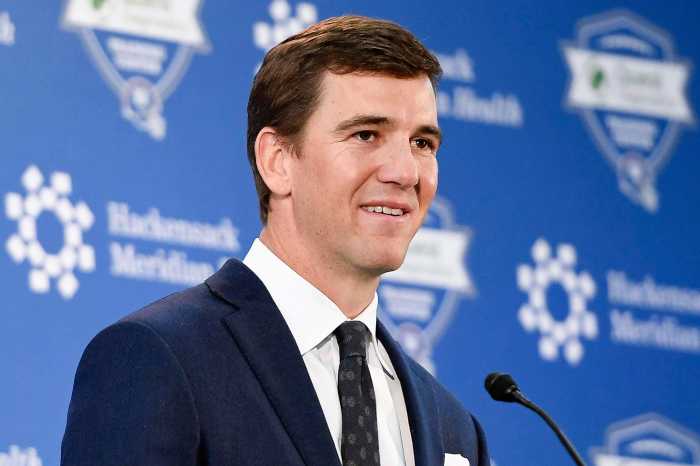With innovative narratives, Robert Glück explores romantic obsession
Maturation is not so much the theme of “Denny Smith,” Glück’s luminous, aching recent collection of stories not out in paperback, as it is the landscape on which its theme plays out.
What is its theme?
As the narrator of the autobiographical story, “Miss American Pie,” tells the neo-hippie boys who’ve picked up his runaway niece, he’s a writer whose theme is “romantic obsession.” The boys are embarrassed for him, and so are we. But we’re also embarrassed for ourselves because, as Glück’s stories make clear, to be human is to have romantic obsessions—for lovers, family, friends, the world, ourselves.
Romantic obsession—the will to feel—creates our relationship to the world, carves out our space within it, keeps us alive. Sure, it’s narcissistic, but for a writer like Glück, romantic obsession is a vocation. As Daryl, Trent’s long-time lover in the two-part novella at the book’s end, “The Purple Men” and “Purple Men 2000,” defends his voyeurism of a neighbor, “The unexamined life is not worth living!” This is a writer’s truism.
The narrator of “Denny Smith,” the book’s title story, is a writer whose lover is leaving him. He lets the reader in on the writing process by shifting from a first-person account of the breakup to a third-person dissection of the couple he’s been in. He creates two characters, Pitch and Catch, who act as stand-ins for his lover and himself. The remove would seem to soften the breakup, but the stand-ins only reveal the relationship in a more glaring light.
Simply their names bare the dynamic. Pitch is active; he’s the lover leaving. Catch is the narrator himself being left. He tells us, “Catch thinks, ‘My life my life my life as a novelty act, and I am afraid,’” acknowledging the trepidation in his compulsion to scavenge from his own life, to render it “a novelty act,” and make a gift of it for his readers.
Self-exposure is brutal, but it’s necessary for writers. In the title story, self-exposure is the writer’s privilege: “When it needed sweetness, I just cannibalized a tender moment. My book improved when I pulled back the sheet and ran my hand along your hip. . .”
It’s his survival: “No more sex. That shut me down… You said, ‘I know what you’re doing. I know that look—you’re composing this in your head.’” And it’s his revenge. The narrator has abided by the lover’s wish that his name—Denny Smith—not be used until, in the end, the lover allows the narrator a parting concession:
“Mon ami, you can use my name. I was only being flippant.” And it’s his revenge. The narrator has abided by the lover’s wish not to use the lover’s name until the lover, in a parting concession to the narrator, allows, “Mon ami, you can use my name. I was only being flippant.”
From that point on, the lover is referred to by his name, Denny Smith. But Glück, taking the narrator’s side, runs away with the concession, not only naming the lover but titling the entire volume after him, “outing” him on countless bookstore shelves. The gesture is mean, funny, and brilliant whether it’s an actual person’s name or not. Autobiography is beside the point. What is important is the relationship the narrator makes with the reader in sharing the joke. We’ve all lived through the bittersweet end of love; we can all relate with the desire for revenge.
In such, Glück’s stories are cathartic for us, but not reductively so. We revel in his characters’ romantic obsessions, but we’re also forced—as Glück himself seems forced, meta-titling some selections “Forced Story” as if he can’t help himself from their truth—to examine them. His characters are drama queens; they get to weep, to contemplate suicide, to turn around and be inexplicably happy, to be stupidly in love. But I say “be” in love instead of “fall” in love because these stories are not about plot; there’s activity but little action, no real denouements. They are not “traditional.” Analytical, scrutinizing, they do not keep the narrative distance necessary for us to “lose” ourselves in them. The characters don’t cooperate.
Our relationship to Glück’s characters is like Uncle Bob’s relationship to his truant niece, Heather, in the story “Miss American Pie.” Uncle Bob champions Heather’s flight to Seattle for vicarious purposes: “I had taken their trip with Ed. Suddenly I could take it again as though I had a second chance to live between two cycles of history in memories that were mine but untamed to me…” But Heather winds up back in L.A., having hitchhiked in the wrong direction: “I felt extremely thwarted. For the consumer of vicarious pleasure, Heather was discouraging. She would not be governed by expectations.” Heather’s story is her own. We don’t share it. What we do participate in, like Uncle Bob, is an examination of the undercurrents of romantic obsession—narcissism and nostalgia.
Shifting from narrative to lyrical to analytic language, Glück invites us to gaze at ourselves as readers. In “Drape It, Then Rape It,” the narrator plays the reader. Having received a safe-sex flyer that he has been told features a picture of his ex-boyfriend’s anus, and having “recognized the view,” he lapses into jealous rhapsody. But the joke is on him when he finds out the photo is not of his ex but “just some porn shot they found in a magazine.” He concludes, “Maybe the moral is that nakedness means asshole. If it’s hidden from view by his position or perhaps by his balls or whatever, it makes clothes of them, clothes of his ass cheeks. If I desire a man I want to be in his asshole, and I know I’m cooling off if that stops being important. My attitude toward his shit is entirely contingent on the pitch of my desire. And I can guess how he feels toward me by his attitude toward mine. What does the reader think?”
Throughout the book, Glück reminds us that the creation of meaning is in the reading as well as the writing. We get to dress the shit, so to speak, in our own desires. But this doesn’t mean there are no concrete realities outside of our own nostalgia and narcissism. Our feelings toward the shit might vary, but the shit still exists. It’s material. In the title story, the narrator says of his lover, “I couldn’t hate you or condemn you—I vented my indignation on the enemies of all mankind. In that conflict truth takes the form of the words it is spoken ‘through’ and a word of truth outweighs the entire world Into that word of truth I was born—in a body—that’s where I stay—in a generation—in a life, unequal—in a personality, forward motion—a language—a country—no getting around that—in my country’s century.”
As he shifts his anger from his parting lover to the powers that shape an unequal world—“the enemies of all mankind”— Glück acknowledges that his romantic obsessions are shaped by language, generation, nation, and the body. His world and its shit are real.
In the historical context surrounding the stories in “Denny Smith”—the AIDS outbreak, the Reagan years—there’s an urgency to the insistence that the shit is real. But to romance the real—to create meaning out of the messed-up world—is what it is to be human. The romantic obsessive—an aging gay man who has survived the loss of friends and lovers to AIDS, shifted feelings and time—insists upon his own humanity. Romantic obsession is self-assertion, a way of making a relationship with a world which otherwise threatens your erasure.
Which brings me back to getting older. If the writer’s job is to examine his life, that’s not unlike the work of any person; it’s just a matter of degrees. We all create meaning and refine it as we age. The boy who finds a puddle of sperm in a gas station toilet in “Do Be. Don’t Be” can’t know he’ll grow up, assert an identity, love, protest, live. But, with hindsight, the narrator knows. The narrator describes his young self: “I still live with my family, and though I can’t imagine a place for myself in the world, I hope the world imagines it for me.” In fact, it is the adult who imagines a place for his child-self in the world, and through narcissism and nostalgia, he describes that place.
By 1993, Daryl of “Purple Men 2000” is infected with HIV: “Although Daryl is not a writer or artist, he hopes to finish his ‘early work’ and commence to his ‘mature work.’ The trees’ shadows are like sundials, the visual manifestation of time. He suspects that society is not letting him grow up. Somewhere else adults are deciding about trade deficits, urban renewal, genetic engineering, war and peace.”
But Daryl is growing up, with Trent, through 16 imperfect years together. As a couple, they create the world, spooning each other, holding it together: “They sleep urgently annealed to each other. Although they don’t know it, this is the secret of their success. Since the seventies, when the myth of Daryl and Trent became flesh and blood, they have spent every night glued skin to skin, de-charging the fury of the day.”
If this be romantic obsession, this aging dyke can tell you, it’s just about the most we can ask of each other, and of ourselves.




































